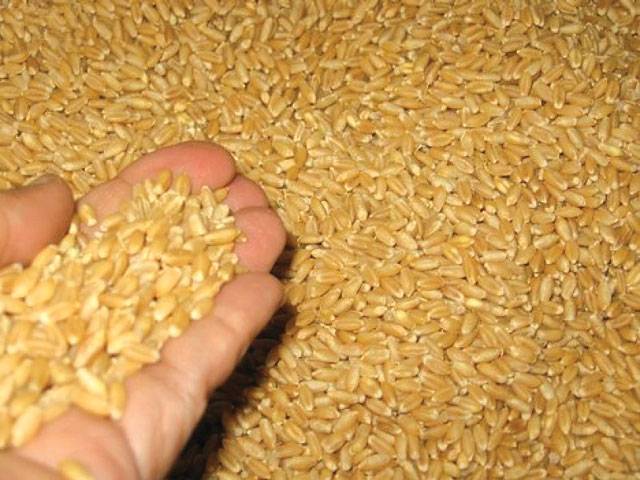LAHORE - The Economic Coordination Committee (ECC) of the Cabinet’s approval of increasing wheat support price by Rs150 per 40kg to Rs1,200, will adversely affect the low-income group in the rural areas, as 60 per cent of rural population in the country is engaged in non-farming activities, experts said.
The government increased the price of wheat by 185 per cent in its tenure of five years just to benefit a number of landlord families, who are already enjoying huge amount of subsidy, besides paying no tax despite earning billions through agri produce, as majority of rural population have no land for cultivation.
By increasing the rate of wheat by over 15 per cent this year, the public representatives have actually enhanced the rates of bread at a time when inflation is out of control, they said.
The Federal government decision to raise wheat support price is political and it will have serious repercussion on the price of flour, the staple food of people of Pakistan.
Dr Bilal Sufi, the Chairman of Founder Group of Pakistan Flour Mills Association, opposing the decision of fixing price of Rs1,200 per 40 kg, said the price of flour will go to Rs720 and above per 20 kg which will badly affect common man. Pakistan will face Indian wheat and flour coming to Pakistan. He termed it as a pre-poll rigging of coming election, saying flour millers will not accept it.
Experts said that our neighbour India has decided not to raise the wheat support price to keep the rate of commodity regionally competitive for high export volumes.
India, one of the world’s biggest producers of wheat, is also one of the biggest consumers with a population of 1.2 billion. It has been exporting stocks from government warehouses, which are overflowing after bumper harvests that were partly encouraged by generous support prices. Maintaining the wheat support price at Rs1,285 per 100 kg, or about $239 per ton, for the crop year that has just started will keep exports attractive, even while inflation is just under 8 per cent and costs of inputs such as fertilizer and diesel are rising, industry sources said.
They said that keeping in mind successive record production in the past few years, huge stocks with the government and a large subsidy burden, Indian government decided to continue with last year’s price.
But India’s wheat output may not fall, even with the unchanged support price. They said that farmers are spending more year after year as labour, diesel and fertilizer costs have been going up and that called for a higher price, but there will not be any major fall in production despite stable wheat price in the country.
Noted economist Dr Ashfaque Hasan Khan said that the wheat price increase was a gift to members of parliament to make money and contest general elections. He said that government would buy wheat from farmers at the cost of Rs1,200 per 40kg and would supply to the flourmill owners after incorporating Rs200 as incidental charges into the price. Subsequently, the mill owners will supply flour to the market at Rs1,700 per 40kg after inclusion of the cost of electricity and miscellaneous charges, he said.
It is to be noted that growers’ bodies had asked the ECC to approve summary of an increase in the wheat support price on the ground that wheat prices in the international market were much higher and resulted in smuggling of wheat to the neighbouring countries. Moreover, the prices of inputs also rose in one year. In order to facilitate and encourage wheat growers, it is essential to increase the wheat support price, they argued.
Thursday, April 18, 2024
Govt increased wheat price 185pc in 5 years

Jailed Myanmar leader Suu Kyi moved to house arrest
April 18, 2024
Jahangir Khan PSA Satellite Squash Series strats
April 18, 2024
Pakistan women face West Indies women in first ODI today
April 18, 2024
Asad, Amir reach PTLA Junior National Tennis semis
April 18, 2024
Rail Revival
April 17, 2024
Addressing Climate Change
April 17, 2024
Saudi Investment
April 17, 2024
Political Reconciliation
April 16, 2024
Pricing Pressures
April 16, 2024
Workforce inequality
April 17, 2024
New partnerships
April 17, 2024
Shikarpur crisis
April 17, 2024
Peace quest
April 17, 2024
Democratic harmony
April 16, 2024
ePaper - Nawaiwaqt
Advertisement
Nawaiwaqt Group | Copyright © 2024





